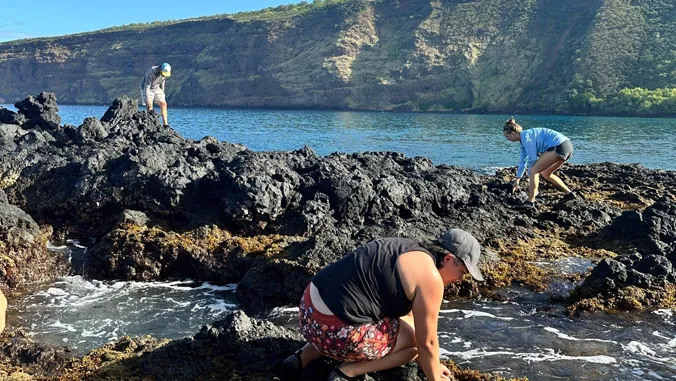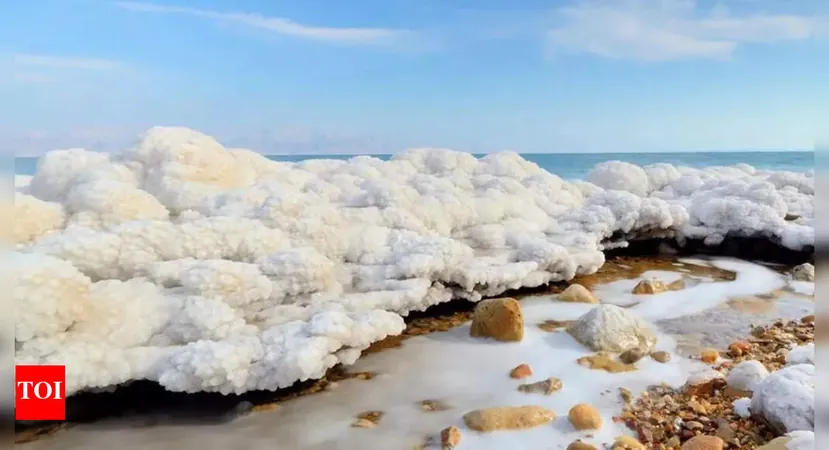
Unlocking Climate Resilience: The Power of Trust Between Communities and Researchers
2025-09-05
Author: Mei
Building Trust for Climate Solutions
In a groundbreaking study published in *Emotion, Space and Society*, researchers highlight how deep-rooted trust among communities, scientists, and nature can revolutionize efforts in climate adaptation. This research, spearheaded by Scott Laursen from the University of Hawaiʻi at Mānoa's Pacific Islands Climate Adaptation Science Center, emphasizes the vital role of collaborative, long-term relationships in fostering innovative climate solutions.
A Local Perspective: Community-Centric Approaches
The study draws insights from a decade of community-driven initiatives on Hawaiʻi Island, showcasing the powerful synergy between local practices and academic projects. Co-authored by seasoned cultural practitioners and community members, the work underscores that when science is guided by local knowledge and respect for ecological interconnections, rapid and effective climate actions can materialize.
The ‘Speed of Trust’
Laursen notes, “Communities and science innovate swiftly when guided by trust and deep local engagement. Moving at the ‘speed of trust’ is essential for overcoming the challenges of our rapidly changing world. Building resilient networks deeply rooted in place presents a robust path forward.”
Innovative Adaptation Strategies
This research delves into ‘relational worldviews’—the concept that the connections among people, places, and ecosystems are pivotal in shaping successful climate adaptation strategies. From revitalizing coral reefs at Kapukapu to rethinking coastal management, the findings show how sustained collaboration can tackle urgent local challenges and nurture future scientists and environmental stewards.
Storytelling and Collaboration: Keys to Success
The publication also emphasizes the significance of weaving storytelling into academic discourse to engage broader audiences. It presents the traditional practice of hoe wāwa (outrigger canoe paddling) as a metaphor for the essence of collaboration—trust, adaptability, and cohesion are crucial for navigating both the ocean’s waves and the complexities of research partnerships.
From Theory to Action
Co-author Akoni Palacat-Nelsen, executive director of Hoʻōla Kealakekua Nui, connects these academic findings to practical actions. Palacat-Nelsen states, “Climate adaptation transcends borders. We redirected our resources towards this global goal using traditional ecological knowledge. Rebuilding the fractured ties between humans and our environment is crucial for redefining how we view resources—transforming them into sources of life.”
Community-Driven Data: A Growing Movement
Projects like Kanu Kōkua showcase community-driven data collection (kilokilo) as fundamental for restoring resilient coral communities and habitats for species like ‘opae ‘ula (shrimp) in Kealakekua Bay. Employing traditional knowledge fosters trust, reinforcing the essential relationship between humanity and nature.


 Brasil (PT)
Brasil (PT)
 Canada (EN)
Canada (EN)
 Chile (ES)
Chile (ES)
 Česko (CS)
Česko (CS)
 대한민국 (KO)
대한민국 (KO)
 España (ES)
España (ES)
 France (FR)
France (FR)
 Hong Kong (EN)
Hong Kong (EN)
 Italia (IT)
Italia (IT)
 日本 (JA)
日本 (JA)
 Magyarország (HU)
Magyarország (HU)
 Norge (NO)
Norge (NO)
 Polska (PL)
Polska (PL)
 Schweiz (DE)
Schweiz (DE)
 Singapore (EN)
Singapore (EN)
 Sverige (SV)
Sverige (SV)
 Suomi (FI)
Suomi (FI)
 Türkiye (TR)
Türkiye (TR)
 الإمارات العربية المتحدة (AR)
الإمارات العربية المتحدة (AR)